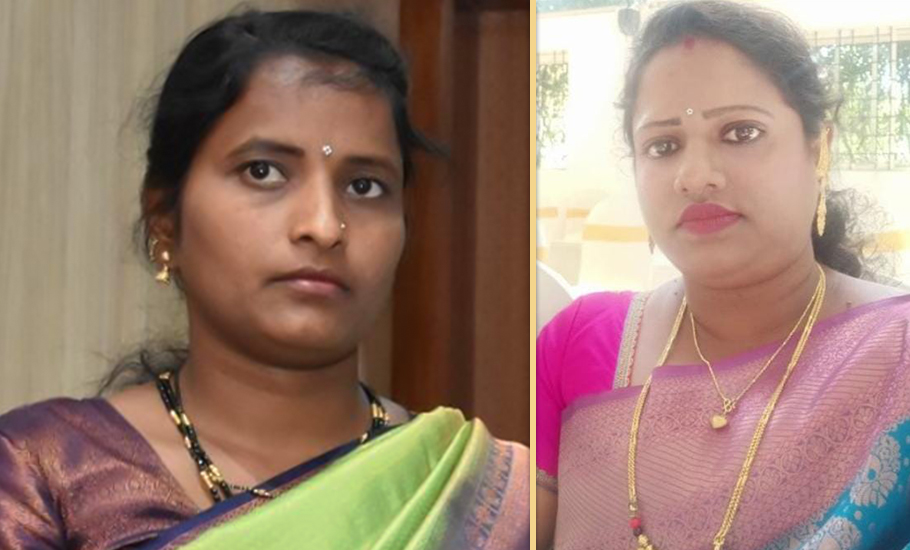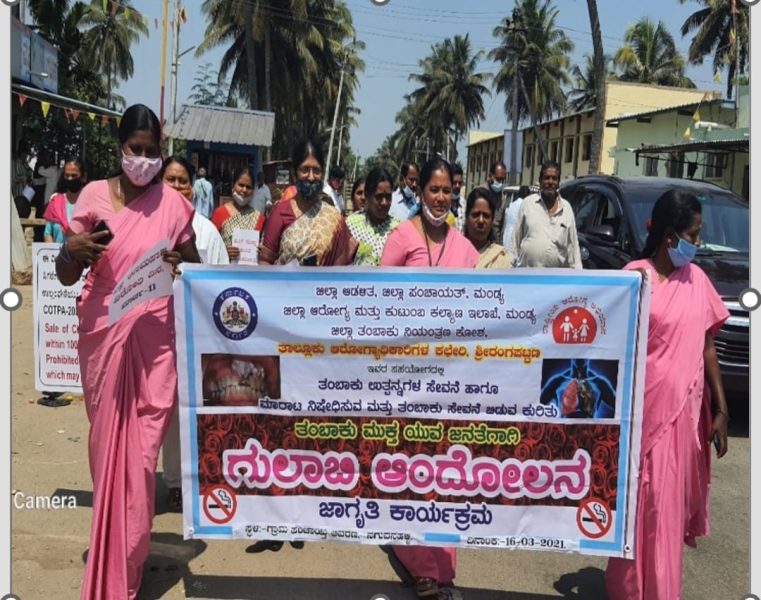
A rose to every smoker: How panchayat women made a Karnataka village tobacco-free
K Suma and M Pallavi, former and current presidents of Naguvanahalli gram panchayat in Karnataka’s Mandya, spearheaded the campaign to help the village get rid of addiction

Lying adjacent to Mysuru district in the Cauvery basin, Naguvanahalli village in Karnataka’s Mandya district had been in the throes of addiction, with 40 per cent villagers addicted to tobacco and gutka not too long ago. Smile had disappeared from the faces of most people living there; it was a bit of an irony since, nagu, the first word in the village’s name means ‘smile’.
While many tobacco users contracted several diseases as a result of regular consumption, a few lost their lives due to cancer. Many suffered from blood pressure and respiratory problems, among other ailments. In the last two years, however, winds of change have swept the village. Today, the village is tobacco-free.
The agents of this change are women. The initiative to make the village tobacco-free was spearheaded by the former and present women presidents of the gram panchayat, with the support of fellow women members and Accredited Social Health Activist (ASHA) workers.
Agents of change
Located about 120 km away from Bengaluru amid agricultural fields, the village has around 2,200 people who depend on agriculture labours and farming. It is dotted with nearly 15 shops, where tobacco products, including cigarettes, beedis and gutkas, etc., were sold. Several students, including children, had got into addiction as their parents and other elderly members consumed nicotine.
Also read: Women should be entitled to menstrual leave: HR expert
The agents of change are K. Suma and M. Pallavi, the gram panchayat’s former and current presidents, panchayat development officer T Mahalakshmi and ASHA workers. Tobacco Control Board officer P Timmaraju told The Federal that they once surveyed the village to get information on Non-Communicable Diseases (NCDs) and found that several villagers had tobacco-related diseases. Several of them were smoked beedis.

The villagers would huddle around the gram panchayat and Naguvanahalli school for tobacco sessions. Since the Taluka Health Officer, M Yashavanth, belonged to the same village, he was alarmed by this development. “We formed a team and spoke to the former gram panchayat president Suma. She and her colleagues came forward to make the village get rid of the scourge of addiction,” he said.
The rose movement
Among those addicted to nicotine, there were several chain-smokers, said Suma. Many of them frequently consumed gutkas and other tobacco products. Some of her own relatives had been affected by the menace. “My colleagues at the panchayat and I decided to take part in the programme to bring awareness among the villagers about the impact of consuming tobacco,” she said.
“We decided to introduce a ‘rose movement’ (Gulabi Andolana in Kannada), along with other like-minded women and ASHA workers. We started moving around the village, along with health officers, psychiatrists, and Tobacco Control Board officials, and distributing roses to the smokers, requesting them not to consume them. The officials helped them to understand the ill effects of smoking and the health hazards, including cancer and other serious health problems,” she said.
The officials and I went from house to house and brought awareness among the people. We convened a meeting of the shopkeepers, who were selling the tobacco products and convinced them not to sell such products by giving examples of how people suffer from the tobacco menace, Suma said.
Also read: Meet five French women authors who celebrate the feminine experience
Pallavi, the current village panchayat president, joined the good initiative undertaken by Suma. Many of her own relatives who consumed tobacco suffered from myriad health issues. “We cajoled and convinced them to abandon the bad habit and we succeeded in making them stop consuming tobacco forever. Though there are six women members in the panchayat, the other seven male members were also associated with the movement. Two members, who used to smoke , have quit smoking,” she said.
Nicotine Replacement Therapy
Tobacco Control Board official Krishna Gowda said that after convincing the villagers, they started giving Nicotine Replacement Therapy to those who found it hard to quit. “Our psychiatrists also helped a lot in this regard. Now, Naguvanahalli has become a tobacco-free village and we are proud of it,” he said.
Joint Director of the Medical Education Department Dr Kiran Kumar said that it is an alarming situation where many young people are becoming addicted to tobacco. “The health department is focusing on tobacco-free villages in the state and Naguvanahalli has already achieved it,” he added.
Randeep, the Commissioner of Health and Family Welfare, appreciated the efforts of the panchayat and health officials and said that while this was a good beginning, a lot was needed to be done in order to make a tobacco-free society.

